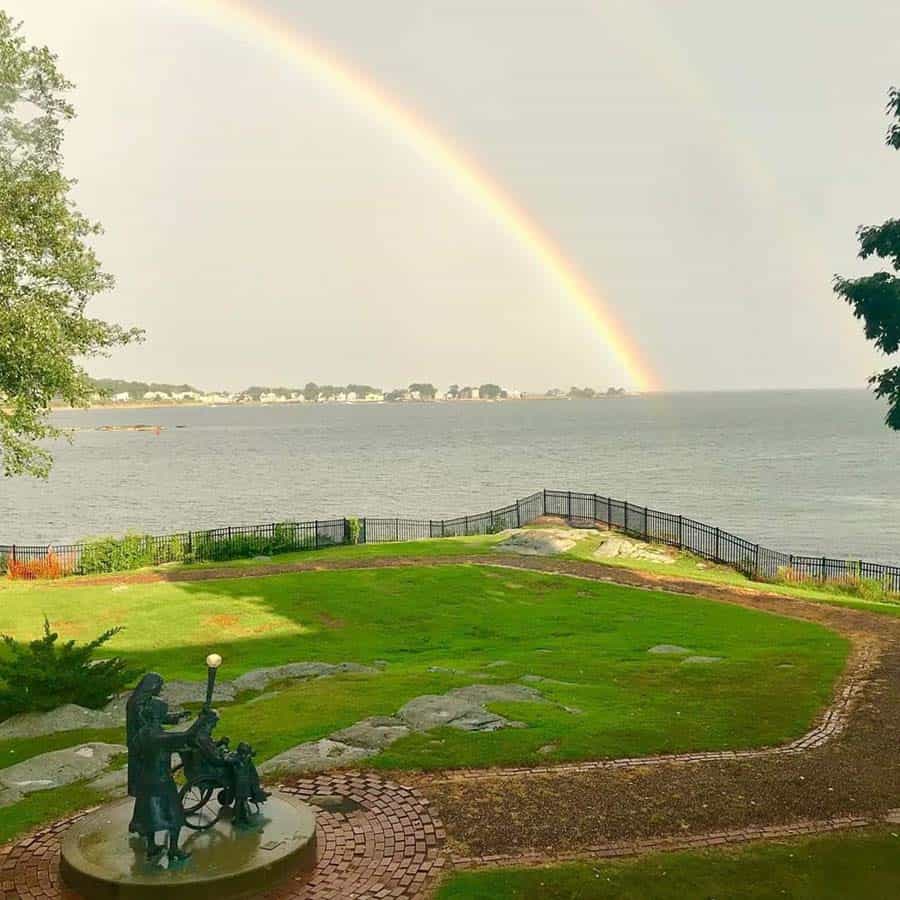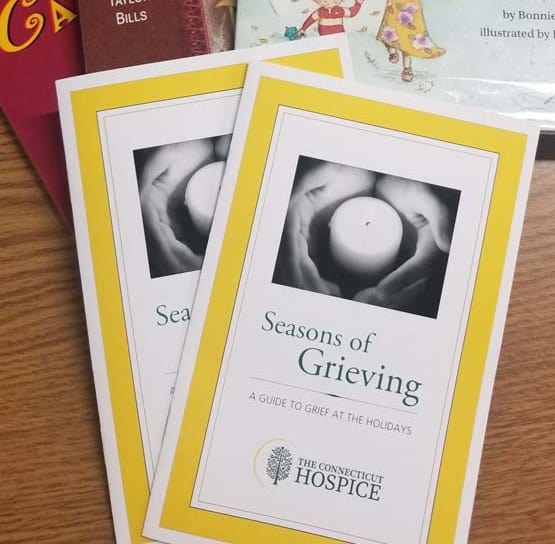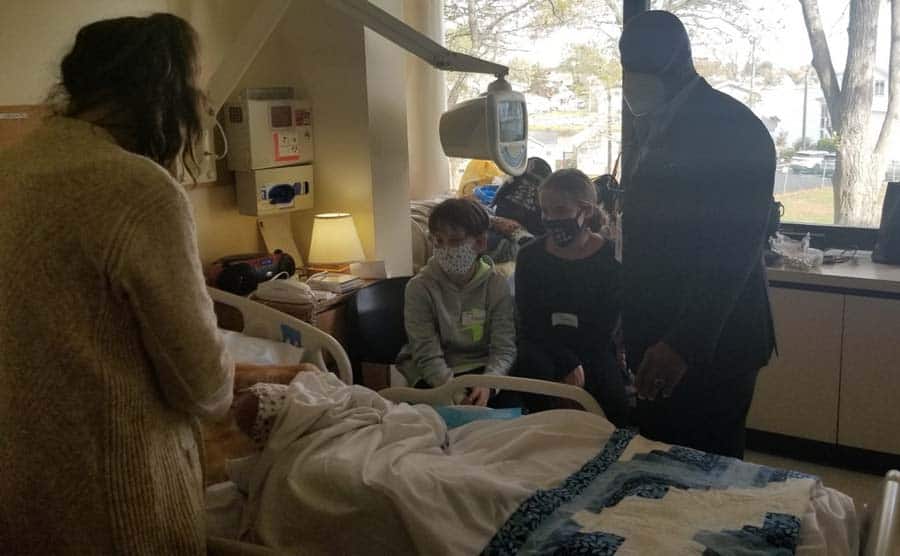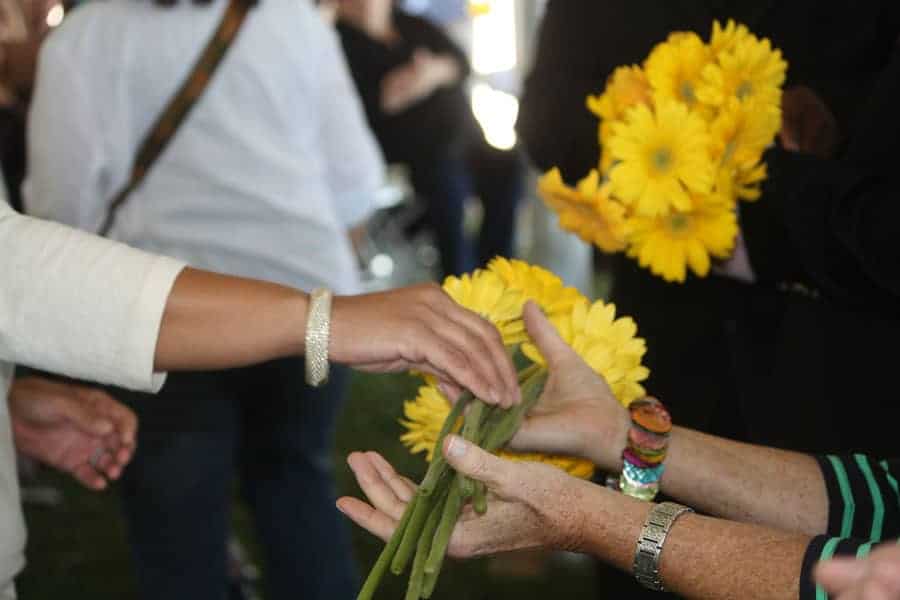Please view our updated COVID-19 guidelines and visiting procedures →.

One of the members of the Hospice team is a chaplain who interacts with other team members in providing total care to our patients who are facing end-of-life issues. In the context of hospice care, spiritual issues and/or spirituality is not confined to one singular religious experience. The chaplain has a broad knowledge of many world religions and is sensitive to their understanding of how these challenges intermesh with the patient’s faith journey at this point in time.
Spirituality may not include an organized faith journey for some of our hospice patients. A sense of meaning in their place in the world in relation to nature, humanity, and a sense purpose all come together in a form of recognized spirituality. The Connecticut Hospice chaplain is here to listen and accompany the patient through this journey.

Spiritual Care is an important component of the comprehensive care plans at Connecticut Hospice. The Hospice Chaplain sits and listens firstly to the patient and hears what they perceive as what is occurring to them. They may express fear, have an unknown feeling of uneasiness, or lack acceptance of the concept of end of life. The chaplain hears the many concerns and transforms these issues into a plan of care. This plan is utilized to help the patient address their issues and to be comforted in the end-of-life process. As chaplain and patient progress in their relationship, adjustments may be made to further a compassionate plan of care that is individually designed to each person’s perceived needs.
This process includes family and friends who can give insight that the patient, because of illness, is not able to remember. The chaplain is also present for family members who struggle at this time of perceived loss. There are so many emotions present: anticipatory grief, anger, depression, and guilt. They begin to manifest themselves in many diverse ways. The chaplain, who is a trained medical-spiritual professional, can address these issues as they arise in the patient and with family members. The Chaplain, as a member of a highly trained team, receives observations from the social worker, nurse, doctor, and team directors that prompts changes to the plan of care to be sensitive to comfort and compassionate care.
A healthy spiritual outlook connects to an overall sense of well-being. This can affect the management of pain, producing a higher level of mental physical comfort. The main hospice goal is always comfort. The chaplain aids in accomplishing that objective.

Chaplains understand the intimate relationship patients have with religion, spirituality and the nature of earthly existence and, specifically, different ethnic cultures. They have spent many hours studying cultures and how they affect each and every being. Even though the family and patient may heavily rely on local clergy, the chaplain is critical in providing ongoing presence and developing a friendship that brings comfort and assurance to all concerned. When the family has its own clergy or spiritual guide, the Hospice Chaplain can assist in notifying that person, and arranging a visit. This specific attention from a pastor is different from the broad spectrum of what spiritual care can encompass.
Looking once again at families, as time progresses and their loved one’s illness progresses, new emotions and expressions among family members emerge. A weekly call from the chaplain can be very beneficial to the family, just knowing someone else cares, someone else understands, someone else knows how they feel.
The Chaplain may suggest reading material that can guide them in their emotions. Sometimes there is a specialized plan for children in what maybe a first-time experience with end-of-life issues. The chaplain is prepared to gently explain what is happening to grandma and to compassionately listen to and answer their questions.

As time progresses, we continue to honor the hospice philosophy that no one should approach death alone. As a critical part of the team, the chaplain is present, if applicable, to once again inform the local clergy, if desired by the patient or family. He or she will be invited to join in with the team in aiding the patient to transition comfortably. The Chaplain, who has at this point developed a relationship with the family, has become a trusted member of the patient’s circle. The chaplain knows the patient’s needs and can help by expressing them at this crucial moment. Again, no one dies alone. Family members will be called and informed that death is near and the chaplain will be present as a guide.

Family members may need counseling or compassionate listening at this time. The chaplain can find a neutral place to allow family members to express their feelings and needs. When death occurs, the family can gather with the chaplain for prayer and blessing.
The journey can continue with the family with helping in appropriate funeral planning in keeping with cultural, religious, and spiritual understanding of each unique family situation. In the weeks ahead the chaplain and a specialized bereavement team member will check in with the family.
Sometimes we are asked to give prayers, or even facilitate a service for the family and friends of the loved one. Then, along with the social workers, we usually turn to the Bereavement Director, who steps in after death, for the thirteen months of grief counselling formally provided. While time limits are fluid, the year or so of formal groups or sessions is seen as a benchmark by Medicare, that accommodates most survivors in that setting.

Currently, Connecticut Hospice has a team of three pastoral care professionals, along with six social workers and a Bereavement Director. In addition, we have many volunteers, who participate from the time of admission, through the transition itself—especially when family members are not able to be present—and afterward, to assist in many ways. Many of them have suffered similar losses, and this is their way of giving back what hospice care provided to them in their time of need. Every team member offers a unique and highly specialized view towards hospice care. The chaplain is one of the team that aids all concerned to a compassionate, informed journey through the end of life.


As a not-for-profit, we depend on generous donors to help us provide customized services and therapies that aren’t completely covered by Medicaid, Medicare, or private insurance.
Please make a gift to help us sustain the highest standard of care.
Admissions may be scheduled seven days a week.
Call our Centralized Intake Department: (203) 315-7540.